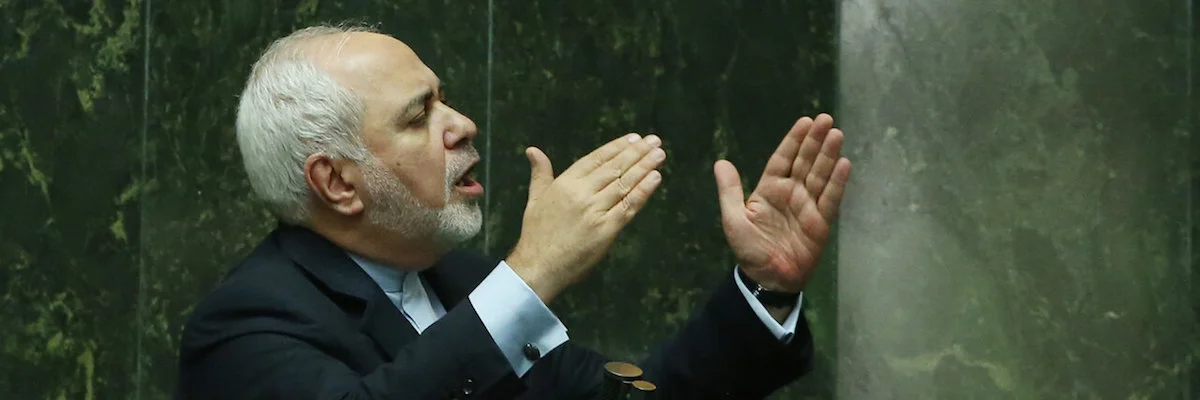U.S. Sanctions Iranian Foreign Minister Zarif as Tensions Rise
By Saleha Mohsin and Justin Sink
The Trump administration on Wednesday imposed sanctions against Iranian Foreign Minister Javad Zarif in a provocative move that diminishes the prospects for a diplomatic solution to rising tensions that have brought the U.S. and Tehran to the brink of war.
The U.S. said Zarif, viewed as Iran’s most skilled diplomat, acts on behalf of Ayatollah Ali Khamenei, who was previously sanctioned.
“Javad Zarif implements the reckless agenda of Iran’s Supreme Leader and is the regime’s primary spokesperson around the world,” Treasury Secretary Steven Mnuchin said in a statement. “The United States is sending a clear message to the Iranian regime that its recent behavior is completely unacceptable.”
Tensions have been flaring around the Strait of Hormuz in recent weeks as Iran lashes out against U.S. sanctions that are crippling its oil exports. Iran is producing oil at the slowest clip since 1986, making U.S. sanctions one of the toughest challenges confronting Iran’s economy since the 1979 revolution.
The largely symbolic sanctions won’t prevent Zarif from traveling to the United Nations in New York for official business. The penalties would block Zarif’s access to any property the has in the U.S., though he said in a tweet that he has none so the sanctions will have no effect.
Zarif, who has been Iran’s foreign minister since 2013, was the lead negotiator in the multinational nuclear deal known as the Joint Comprehensive Plan of Action. It was supposed to yield economic advantages for Iran, but instead renewed U.S. sanctions have shattered that expectation since President Donald Trump quit the accord last year.
The U.S. sanctions may bolster Zarif’s standing in Iran, where hard-liners have long blamed him for helping to craft the nuclear accord. “Thank you for considering me such a huge threat to your agenda,” Zarif said in his tweet.
Zarif oversees a Foreign Ministry that has “coordinated with one of the Iranian regime’s most nefarious state entities, the IRGC-Qods Force (IRGC-QF), which is designated pursuant to terrorism and human rights authorities,” according to a statement from the Treasury Department.
The Trump administration said last month it was planning to sanction Zarif, who received his bachelor’s and advanced degrees at U.S. universities.
Secretary of State Mike Pompeo has dismissed Zarif’s role in setting the government’s policy, which he said is driven by Khamenei and the Islamic Revolutionary Guard Corps.
“Foreign Minister Zarif is no more in charge of what’s going on in Iran than a man in the moon,” Pompeo said on Bloomberg Television last week. “At the end of the day, this is driven by the ayatollah. He will be the ultimate decision-maker here.”
Zarif said earlier this month that Iran’s leaders know they can’t count on Trump losing his 2020 re-election bid.
“There is a better than 50% chance that he might still be in office, so we will need to deal with him for another six years,” Zarif said in an interview on Bloomberg Television.
Photo: IRNA




